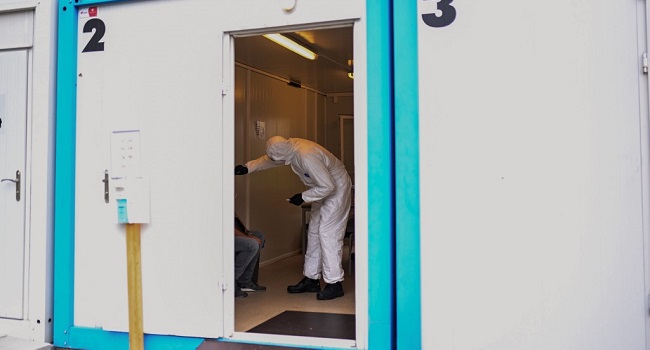
The World Health Organization on Saturday warned the coronavirus pandemic was likely to be “lengthy” after its emergency committee met to evaluate the crisis six months after sounding the international alarm.
The committee “highlighted the anticipated lengthy duration of this COVID-19 pandemic”, the WHO said in a statement, and warned of the risk of “response fatigue” given the socio-economic pressures on countries.
The panel gathered Friday for the fourth time over the coronavirus crisis, half a year on from its January 30 declaration of a public health emergency of international concern (PHEIC) — the WHO’s highest level of alarm.

“WHO continues to assess the global risk level of COVID-19 to be very high,” said its latest statement.
“The committee highlighted the anticipated lengthy duration of this COVID-19 pandemic, noting the importance of sustained community, national, regional, and global response efforts.”
The novel coronavirus has killed at least 680,000 people and infected at least 17.6 million since the outbreak emerged in China last December, according to a tally from official sources compiled by AFP.
Unsurprisingly, the panel, comprising 18 members and 12 advisers, unanimously agreed that the pandemic still constituted a PHEIC.
Crisis fatigue warning
Several countries around the world have imposed strict lockdowns in a bid to control the spread of the respiratory disease, plunging economies into sharp contraction.
The committee urged the WHO to provide nuanced, pragmatic guidance on COVID-19 reactions “to reduce the risk of response fatigue in the context of socio-economic pressures”.

JOEL SAGET / AFP
The panel urged the WHO to support countries in preparing for the rollout of proven therapeutics and vaccines.
The committee also urged the agency to accelerate research into the remaining “critical unknowns” of the virus, such as the animal source and potential animal reservoirs.
It called for improved understanding of the epidemiology and severity of COVID-19, including its long-term health effects.
And the committee wanted more light shed on the dynamics of the virus, such as “modes of transmission, shedding, potential mutations; immunity and correlates of protection”.
The near six-hour gathering was hosted at the WHO’s headquarters in Geneva, with some participants joining via video-link.
The committee will reconvene in three months’ time.

Effects ‘felt for decades’
Going into the meeting, WHO chief Tedros Adhanom Ghebreyesus said the pandemic’s effects would be long-lasting.
“It’s sobering to think that six months ago, when you recommended I declare a PHEIC, there were less than 100 cases and no deaths outside China,” he said Friday.
“The pandemic is a once-in-a-century health crisis, the effects of which will be felt for decades to come.”
The WHO has been sharply criticised for the length of time it took to declare an international emergency.

The United States, which accused the organisation of being too close to China, officially began its withdrawal from the organisation in July.
The agency has also been criticised for recommendations deemed late or contradictory, in particular on wearing masks, or the modes of transmission of the virus.
“Many scientific questions have been resolved; many remain to be answered,” Tedros said Friday.
“Most of the world’s people remain susceptible to this virus, even in areas that have experienced severe outbreaks.”
-AFP

